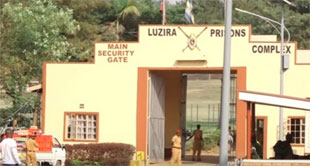
The German development agency, GIZ, together with Uganda’s Ministry of Water and Environment will within a year establish a hydrological yearbook for the country.
The yearbook will essentially have a compilation of data on Uganda’s water resources such as the quantity of water available in Uganda’s water bodies; river discharges and lake levels.
“It will summarize all that information such that if you are a user, you do not have to go looking for each of that information,” said Eng. Nebert Wobusobozi, the commissioner for water resources monitoring and assessment at Uganda’s ministry of water and environment.
“It will give a more accurate picture of the water resources situation in the country; what is available in given places and how the water quantity varies over time.”
Speaking at the start of a three-day fourth Intergovernmental Authority on Development (IGAD)-Hydrological Cycle Observing System (HYCOS) project steering committee meeting on Sept.28 in Entebbe, Wobusobozi told The Independent that the first edition of the yearbook will come out in a year’s time and it will then be updated every five years.
GIZ which has been working with the Directorate of Water Resources Management (DWRM) since 2009 will also upgrade the data centre at the ministry of water.
“The document will collate hydrological data on Uganda’s water resources since 1978 and will spell out the status of water in Uganda up to the present time,” Daniel Opwonya, GIZ’s technical advisor told The Independent on the sidelines of the meeting.
Opwonya said Uganda is already facing climate change and one of the ways of adapting is by understanding the status of key resources like water to enable the government make informed decisions.
The IGAD-HYCOS project is designed to promote sustainable and integrated water resources development and management within the IGAD region through enhancement of regional cooperation and collaboration in the collection, analysis, dissemination and exchange of hydrological and hydro-meteorological data and information for water resources assessment, monitoring and management.
The € 6.6m EU-funded project aims at providing adequate infrastructure for hydrological observations and appropriate regional cooperation in information exchange among the IGAD countries. It is being implemented by the World Meteorological Organization (WMO) and IGAD.
The project is intended to expand and upgrade the regional hydro-meteorological networks and provide real time or near real time data transmission systems necessary for the establishment of a regional water information system.
For each of the ten beneficiary countries, the project will strengthen national hydrological services through strengthening regional hydrological data bases and training of critical personnel.
The participating countries in the project are Burundi, Djibouti, Ethiopia, Kenya, Rwanda, Somalia, South Sudan, Sudan and Uganda.
Wobusobozi said Uganda received about $420,000 to set up to 14 telemetric stations around the country to strengthen the country’s early warning systems against natural disasters such as floods and droughts.
Dr. Artan Guleid, the director of the IGAD Climate Prediction and Application Centre (ICPAC) noted that the IGAD region is 70% semi arid and water is one of the limited factors for development and without knowing where, when and how much water there is; it is impossible to plan.
“Most of the countries in the IGAD region are already water-stressed with climate change and with a projected rise in population in the region; the remaining countries that may not be stressed will soon become vulnerable.”
Guleid said by 2025, all countries in the IGAD region would face water scarcity. He added that throughout the continent, observer networks—both hydrologic and meteorological networks— are at the moment less than there were in the 1960s.
“This project is meant to revitalize those networks in the region,” he said.
Charles Esimu Okuraja, a senior official at the water ministry said Uganda like many other countries in the region has an inadequate hydrometric network which compromises the quality of data collected.
“Water resources represent an important issue in Africa and particularly in the IGAD region; with climate change and an ever rising population, proper management of water resources becomes a high priority in the region,” Okuraja said.
“The importance of water cannot be overemphasized; water is life and the provision of adequate water is a fundamental human right.”
“Water contributes to socio-economic development and it is essential for energy production, irrigation, livestock, agriculture, and the mining industries.”
Okuraja said since climate change is now with us, sound water resources management is more important now than ever before.
He said is at the moment Uganda is experiencing extreme weather events in form of droughts and floods which are usually followed by spells of long droughts.
“There is need therefore to lay appropriate risk based management strategies to reduce the impacts of these natural extreme events.”
 The Independent Uganda: You get the Truth we Pay the Price
The Independent Uganda: You get the Truth we Pay the Price


